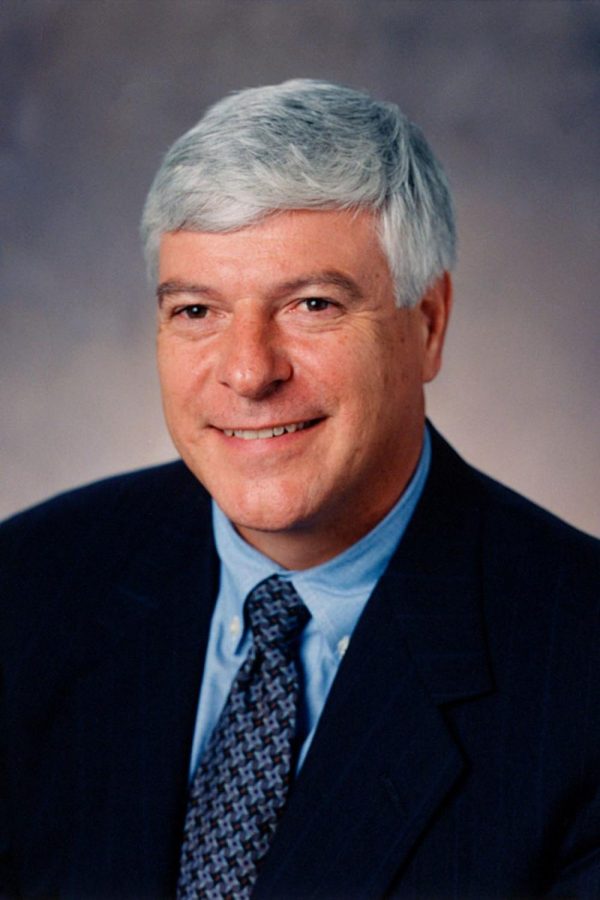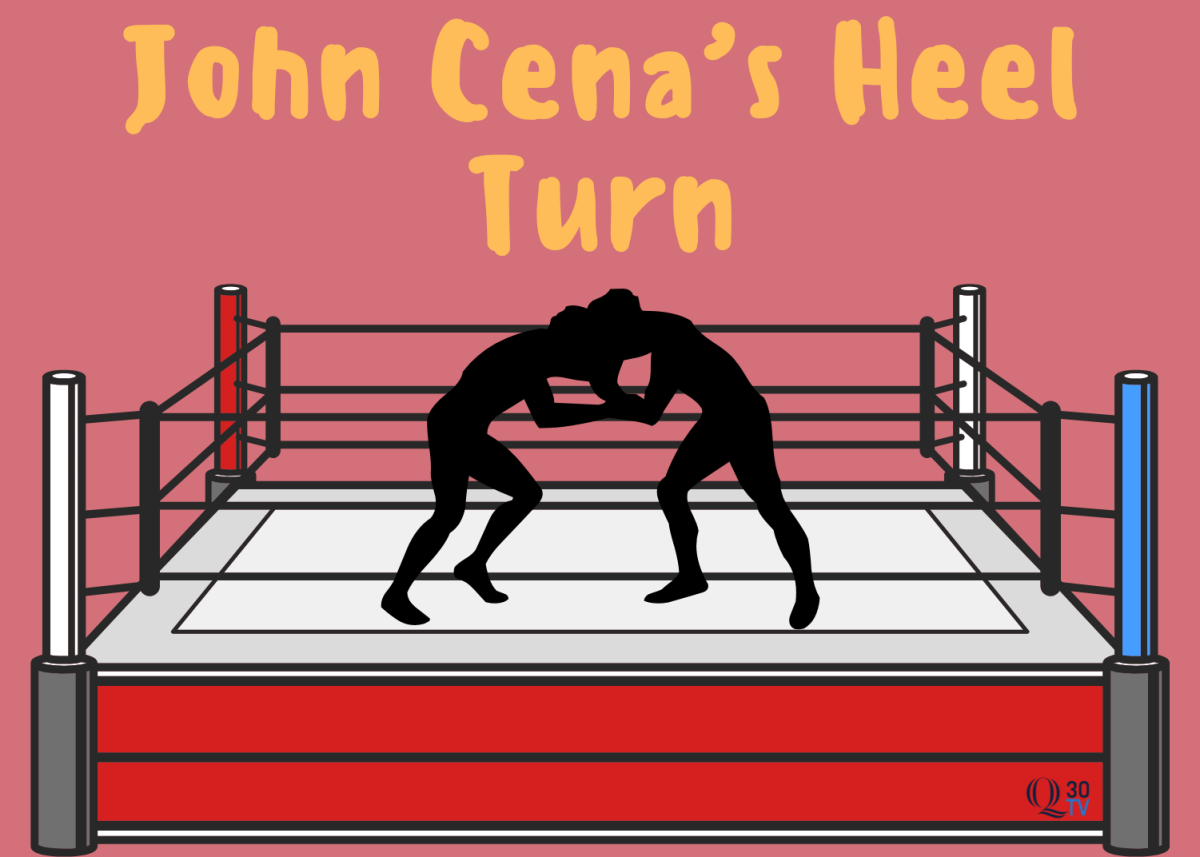Quinnipiac alum starts petition to remove Chair of the Quinnipiac Board of Trustees
August 28, 2019
Quinnipiac alum, Jack Onofrio ‘19, started a petition on Monday to remove Chair of the Quinnipiac Board of Trustees, William Weldon, who worked for Johnson & Johnson during the opioid epidemic. After learning that Johnson & Johnson was ordered to pay $572 million for its role in Oklahoma’s opioid crisis, he realized that Quinnipiac has its own connection to the well-known pharmaceutical company.
William Weldon, Chair of the Quinnipiac Board of Trustees and a Quinnipiac 1971 graduate, worked for Johnson & Johnson during the time of the opioid crisis.
“I decided to look into the court filings to see what years William Weldon was working at Johnson & Johnson and what positions he was working in, and how they correlated to the lawsuit,” Onofrio said. “I saw that essentially as William Weldon was coming into positions in the pharmaceutical department and eventually in as CEO, correlated almost perfectly with the times that the court documents were saying that they were practicing all this deceitful advertising and basically stroking the flames of the opioid epidemic and pushing more and more opioids onto the streets.”
According to Horatio Alger Association, Weldon began working as an entry-level sales representative right after he graduated from Quinnipiac. He quickly moved through the company, working in sales, marketing and international management positions. He then became president of Ethicon Endo-Surgery at Johnson & Johnson in 1992 and Company Group Chairman in 1994. He became the Executive Committee Worldwide Chairman of the Pharmaceuticals Group in 1998 and was named chairman and CEO of Johnson & Johnson in 2002. He held this position until he retired in 2012.
Statistics from the court documents show that from 1994 to 2006, prescription opioid sales increased four times as much. More than 2,100 people from Oklahoma died of unintended overdoses from 2011 to 2015. The court findings indicated that, since at least the mid-1990s, Johnson & Johnson has “marketed, promoted and sold opioid drugs in Oklahoma.”
Onofrio decided to create a petition to remove Weldon as Chair of the Quinnipiac Board of Trustees.
“Weldon has no place at the forefront of Quinnipiac’s management. It is an embarrassment to every member who has struggled with, and lost friends and family to opioids. Regardless of his success in the business world, Quinnipiac must send a message that Weldon and his antics do not reflect the values of the University,” Onofrio stated in the petition’s description.
Onofrio said that he believes Quinnipiac is at a place now where it is a nationally known university, and it isn’t difficult to recruit board members and does not think that Weldon should continue to be a leader at the university.
Onofrio shared his petition to the Quinnipiac Facebook pages in hopes of capturing the attention of more current students.
“I think all of our students, especially those who are studying in health science fields should be infuriated by this,” Onofrio said. “I just think there needs to be some sort of emotion from the students at Quinnipiac… If the students really show that they care and that they don’t want to be portrayed, or they don’t want to have their university managed by someone who played a role in this crisis, then maybe, hopefully, we could get a response from the higher ups at the university.”
Weldon and his wife, Barbara, recently donated $15 million to the university at President Judy Olian’s inauguration ceremony on May 1, 2019. This was the largest donation in Quinnipiac history.
The Weldons released a joint statement that day in regards to their donation to the university.
“It changed our lives, and we hope it continues to open doors for many others. We are delighted to be able to contribute to our alma mater, to embolden its future and to help the university continue to create opportunity for future generations.”
“I’m glad he’s donating right now,” Onofrio said. “But, at the end of the day, I don’t think any amount of money can excuse playing a role in the opioid epidemic, especially considering that we’re a school that’s so focused on health science and putting so many doctors out there, and we’re being managed by a man who was directing people to mislead doctors and cause an epidemic.”
The university declined to comment on the matter.
Stay with Q30 for updates.







